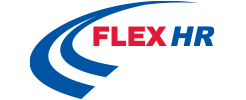Beat the Great Resignation by Recruiting Smarter
The “Great Resignation” is here, now is the time to start recruiting smarter. It’s no secret that the COVID-19 pandemic has changed the way we work forever. Now, everyone is talking about “the great resignation,” as more employees than ever are considering quitting, changing their jobs, or simply not coming back to work as the pandemic is fading.
At Flex HR, a full-service human resource outsourcing, consulting, and recruiting firm, admits that it has been very difficult to find candidates that work for $20 or less to apply to various roles. Additionally, those that took a leave of absence during the pandemic are not coming back to their position, realizing they don’t want (or have) to return because they have made the situation work, like a parent staying home with kids, for example, are not returning to the workforce.
Yet, this isn’t the first instance of this phenomenon, and it won’t be the last. Anthony Klotz, Texas A&M University’s Mays Business School associate professor of management had coined the term “great resignation” in 2019, before the pandemic hit. There had already been a rise in job dissatisfaction as employees’ needs and expectations changed.
Mary Faulkner, a principal at IA, notes that even though studies and articles are saying that 55%-90% of Americans could quit their job, this is not a new phenomenon. Many people consider quitting, but far fewer actually follow through.
Today, the growing percentage of the workforce who are quitting means there should be a slew of talent to hire. However, the problem is, many companies aren’t offering the things employees need, which caused them to quit in the first place. Jim Cichanski, the Founder & CHRO of Flex HR, stated “our clients have heightened the subject about returning to the office and there is an overwhelming majority of employees that have indicated they want a hybrid work schedule with no more then two workdays on site a week.”
Strategizing to Attract Talent
“The majority of the time these days, recruiting has exacerbated efforts, turning into more energy being used, and increasing costs to hunt and find qualified candidates because they are not applying like they used to,” says Teresa Monday, Director of Recruiting and Talent Acquisition at Flex HR. Companies trying to recruit talent need to up their game. Their recruiting strategies and methods need to be more creative and more in line with the needs of those who are looking for jobs.
A Bankrate Job Seeker Survey revealed that over 50% of millennials want more flexibility, 53% want higher pay, 47% want more job security, 35% want more time off, and 24% want a better work culture. Additionally, even more Gen Zers wanted flexible work schedules and higher pay.
For those who are hiring, it is important to note that those who wanted the most job flexibility had higher incomes ($80,000+/ year), and the majority were women and those who are more educated.
Don’t panic. You don’t have to offer fully remote positions, with completely flexible schedules. Some of those looking for jobs don’t expect any opportunity to work from home, while 41% are satisfied to work remotely one day a week. Only 19% of those seeking jobs expected to work remotely full time, says the Job Seeker Survey.
While working remotely and having a flexible work schedule is an important desire, job seekers are looking for more benefits, especially if they are working parents or caregivers. Some individuals want extended paid leave and policies in place to protect their work/ life balance. “Getting more creative by offering other ancillary benefits like long term care for parents or pet insurance, can show the progressive nature of the company candidates are looking to join,” notes Jim Cichanski, Founder & CHRO of Flex HR.
One way to find out what the people you are trying to recruit want is to have listening sessions wherein you conduct surveys and speak with individuals about what they need. This is one area where using an external HR service could help to supply the information you need to strategize more effectively.
Jennifer Preston, HR Consultant at Flex HR, adds that, when hiring, “employers need to be…more flexible about offering and keeping flexible/hybrid programs in place, especially for their top performers.” Preston pointed out that hiring costs are so high that its best to try to offer enough flexibility not just for recruitment but also to retain more employees so that you don’t have to spend as much rehiring.
Managing the Fluid Recruitment Process
Jennifer Currence, CEO of WithIN Leadership in Tampa, Florida weighed in on the issue of employers who say no one is looking for work. She challenged them, saying these companies are not using the right strategies. For example, most companies don’t offer large referral bonuses, and therefore don’t encourage employees to refer others.
Companies need to be cautious, warns Teresa Monday. “Allowing recruiters to increase salary ranges or give them a sign on bonus is happening more frequently, but you need to take into account that a current employee in that similar role is probably not getting paid what a new individual will get paid and that it may be necessary to give that employee a raise to retain them.”
Companies need HR professionals, whether from within the company or external, to help identify good candidates and discover their wants and needs. Then, those who are offered opportunities need to be given reasons to work for that company over others. They need to be followed up with so that they don’t slip through the cracks.
The hiring process should have a seamless standard, where candidates are treated with the same respect and level of communication as if they are already employees. This will lead to more effective onboarding. Effective onboarding means going the extra mile to make an employee feel welcomed, wanted, and that their needs are understood and will be met. Those who are handled well in the interviewing and onboarding process are more likely to stay with a company longer.
Companies that feel no one is looking for a job need to face the reality that plenty of people are looking for jobs, and that it might be their recruiting strategies that need to be reworked. In fact, 30% of Americans are seeking jobs right now, and 24% plan to do so soon.
Yet, 80% of business leaders are struggling to fill positions quickly, and they end up paying more to recruit because of the immediacy of their needs. One factor that has helped some of these businesses is increasing the salary. Yet, that is not the only factor that can draw in prospective employees. Many professionals want an inclusive environment and an attractive mission. Those can be good selling points for businesses and organizations that don’t have the ability to raise the salary.
Another issue that has caused more workers than ever to leave their jobs is that their skill level does not match the requirements of their job. This means recruiters are having to take more effort to sort through the qualified candidates and be more creative with the way they post a job description, as well as the way they seek out candidates.
HR and Recruiting Directors Need to Work Together
HR leaders and recruiting directors need to step up to address some of these recruiting issues together. They need to pay attention to the need for flexible, hybrid schedules and more pay, which have clearly been the top trend. They need to advocate for better on-boarding and training, and make sure companies are communicating their stance and policies concerning diversity, equity, and inclusion.
“It’s absolutely crucial for HR and the Recruiting Director to have methodologies set in place for the hiring and onboarding process,” Teresa Monday stresses.
She goes on to say “keeping clear and consistent communications after the offer letter gets signed is vital. That way the new employee knows what will happen every step of the way: explain what happens 3 weeks prior to the start date (where most of the new hire paperwork is completed), outline expectations for the first day on the job, and then delineate the first month of work.”
Then, to prevent further loss of employees, HR must recognize how the pandemic has changed certain jobs. Some employees may need further training and support to keep up with the changes this has brought about.
Furthermore, there is a movement to fill learning gaps in the work place that had previously been overlooked. This might include training older employees, or those who have worked with an organization for a long time, in new strategies that use technology or more modern methods.
In the past few decades, there has been a growing demand and trend towards wage growth, which HR and Recruiting Directors need to consider when hiring and retaining employees. The aftermath of the pandemic has only fueled this trend.
In April 2021, annual salaries averaged over $50,000, while they had been $47,400 the previous year. If recruiting directors don’t raise the salary they are offering to keep up, better candidates will apply elsewhere.
Why It’s Important to Outsource Human Resources and Recruiting Smarter
Outsourcing HR and recruiting may sound scary. After all, your HR and recruiting department should know your company better, right?
Even if you have an HR department and recruiting director you are happy with, they will be limited in their capacity and knowledge, as they fulfill various roles in your organization and wear many hats.
So, what are you waiting for? Outsourcing to specialized organizations will save you time and money, and help you find the talent you are looking for. A statistical study by Capital Counselor shows that 70% of companies outsource to reduce their costs, followed by 40% outsourcing to give them more flexibility. These exclusive experts work hard to recruit and retain employees by using the most recent data, trends, and techniques. Outsourcing HR functions will fill in the gaps where your HR department is limited or lacking.
Article written by:
Jamie Sieja
Director of Marketing and New Business
Flex HR
Outsourcing to organizations such as Flex HR save you time and money, and help you find the talent you are looking for. Mainly because we have trained experts who can work remotely to recruit and retain employees, using the most recent data, trends, and techniques. Flex HR can fill in the gaps where your HR department is limited or lacking, to ensure you don’t have to go through the costly, painful ordeal of constant recruiting.


